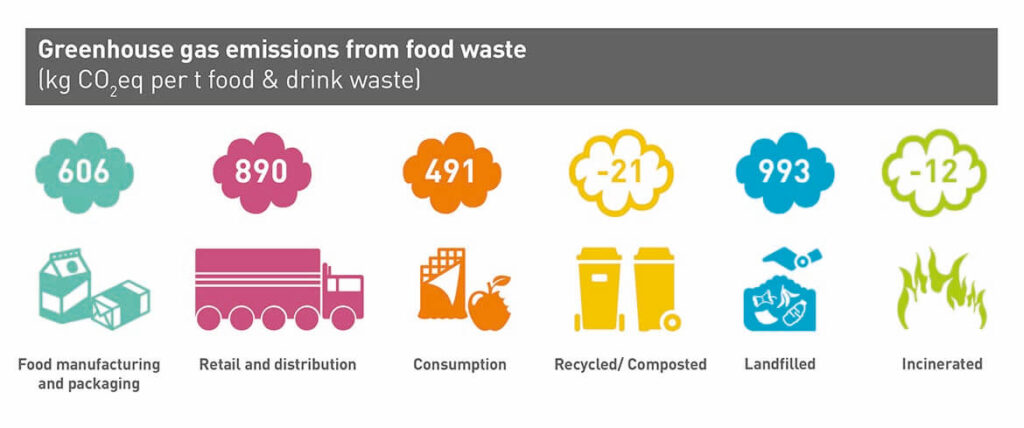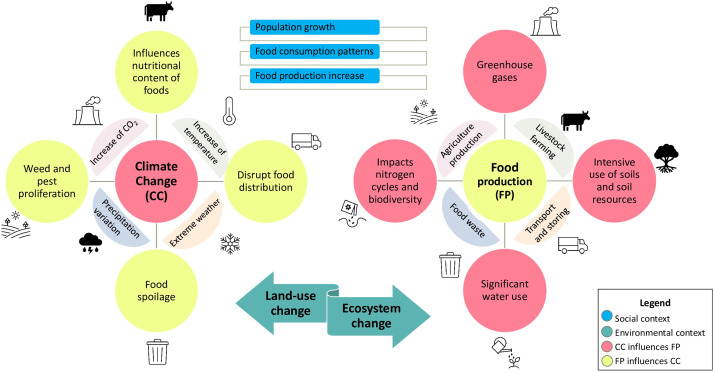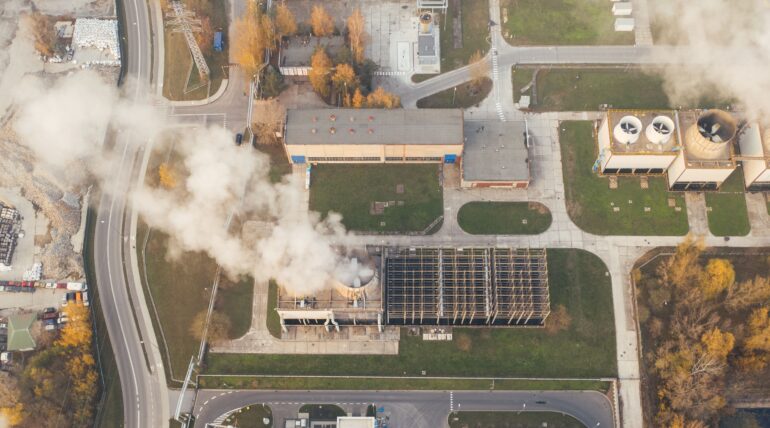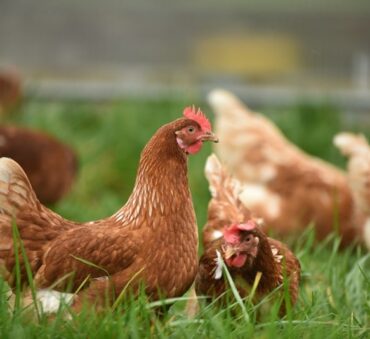We can describe Food waste as the food that is disposed of during any stage of the food supply chain, whether it is edible or inedible. On the other hand, climate change often refers to the shifts and variations in temperature, weather patterns and climate average conditions. But what is the link between food waste and climate change? and how to address the problem?
When food waste lands up in landfills, it decomposes anaerobically (that is, without oxygen), and because of this, it releases harmful methane gases into the environment, contributing to climate change. However, this is only the tip of the iceberg.
In this article, we will explore the various ways in which food waste contributes to climate change, the reasons why we should fight the problem and how to reduce its negative impact.
How Food Waste Affects the Climate Change
Climate change that results from food waste comes in the form of extreme weather events. Examples of this include global warming, deforestation, droughts and severe rainfall pattern changes that cause floods, biodiversity loss and more. This has a negative impact on agriculture, economy, health and ecosystem.
1. Global warming
Globally, food waste contributes to an estimated 8% of greenhouse gas emissions. The detrimental carbon footprint that this type of waste leaves is measured at 3.3 billion tons of carbon dioxide equivalent. These gasses trap heat in the atmosphere, which increases temperatures and causes global warming.

2. Energy and resource waste
Food is not the only resource that gets lost in the process. Energy, water, and land resources are all wasted too.
When edible food gets disposed of, the energy used during the agricultural stage, such as the machinery used in harvesting and transporting the produce, is wasted, increasing the carbon footprint.
Water scarcity gets aggravated by the amount of water used for agriculture and food that ends up in landfills. Deforestation to make way for agricultural croplands was futile, leaving behind unnecessary biodiversity loss in the area.
3. Deforestation and biodiversity loss
As food demand grows, so does the need for agricultural expansion. When farmers expand their land to meet this need, it leads to deforestation and the loss of biodiversity. Natural ecosystems get cleared to make way for agricultural land needed for farming. This is known as deforestation. Deforestation threatens and disrupts biodiversity, as wildlife loses habitat availability, which could even lead to the extinction of species found in these areas.
4. Wasted Fertilizers and Pesticides
Farmers use fertilizers and pesticides on their crops. These methods are harmful to the environment, causing water pollution and impacting soil health. With increased food demand, farmers tend to apply larger quantities of fertilizer and pesticides. The excess use, however, can get washed away by rainwater and irrigation and carried over into water bodies, causing water pollution. Overuse can also cause ecosystem degradation by affecting soil health and causing residue buildup, which disrupts plant growth. When food goes to waste, the excess use of fertilizers and pesticides also goes to waste.
5. Loss of Food Security
Food is a valuable resource, and when it goes to waste, it takes away from those in need.
Food insecurity can be reduced by reallocating resources so that food goes to those in need. Redirecting surplus foods can reduce hunger and also lead to equitable access to food resources.

Addressing Food Waste & Climate Change
Fighting climate change is a collaborative effort among all stakeholders involved. Individual consumers, businesses, and government agencies all have a role to play in making a positive impact in addressing food waste that affects climate change.
- Individual level: Food waste can be alleviated by making responsible food choices, and only purchasing what is needed. The consumer needs to be aware of the impact that food waste has on the environment and make educated decisions when it comes to food products for consumption to reduce the impact on climate change.
- Business level: Businesses can address the impact they make on climate change by reducing food waste throughout the supply chain. This can be done by implementing inventory management systems and reducing overproduction. In the case of overproduction still happening, the food can be redirected to those in need. Sustainable packaging practices can also be implemented to have a better impact on the environment.
- Government level: Governments can reduce food waste by enforcing policies and regulations which businesses and stakeholders in the supply chain must follow. They can also educate all other stakeholders through public awareness campaigns about the problems caused by food waste, the negative impact on the environment, and how to combat it through sustainable production and consumption behaviors.
These stakeholders can also fight food waste that leads to climate change by partnering up with a reliable waste management company, such as Shapiro, that offers sustainable food waste recycling services to minimize food waste and fight climate change.
Why is it important to address the role of food waste in climate change
Reducing food waste has the potential to provide solutions to mitigate climate change. Promoting sustainable practices throughout the food chain reduces greenhouse gases, conserves resources, and protects ecosystems. By taking action to reduce food waste, significant progress can be made in the fight against climate change.
Frequently Asked Questions
Food waste contributes to climate change through the release of greenhouse gases, such as methane, during anaerobic decomposition in landfills. These harmful gas emissions trap the sun’s heat and contribute to global warming and climate change.
Food waste has several environmental impacts, including the emission of greenhouse gases, water pollution, land resource wastage, deforestation, biodiversity loss, increased carbon footprint, and the wastage of fertilizers and pesticides.
Water resources, such as the irrigation used for agriculture, are effectively lost due to food waste.
Yes, reducing food waste can help alleviate food insecurity and hunger, improve sustainability, and promote equity by redirecting resources from wasted food to those in need.
Baily Ramsey, an accomplished marketing specialist, brings a unique blend of anthropological insight and marketing finesse to the digital landscape. Specializing in educational content creation, she creates content for various industries, with a particular interest in environmental initiatives.



